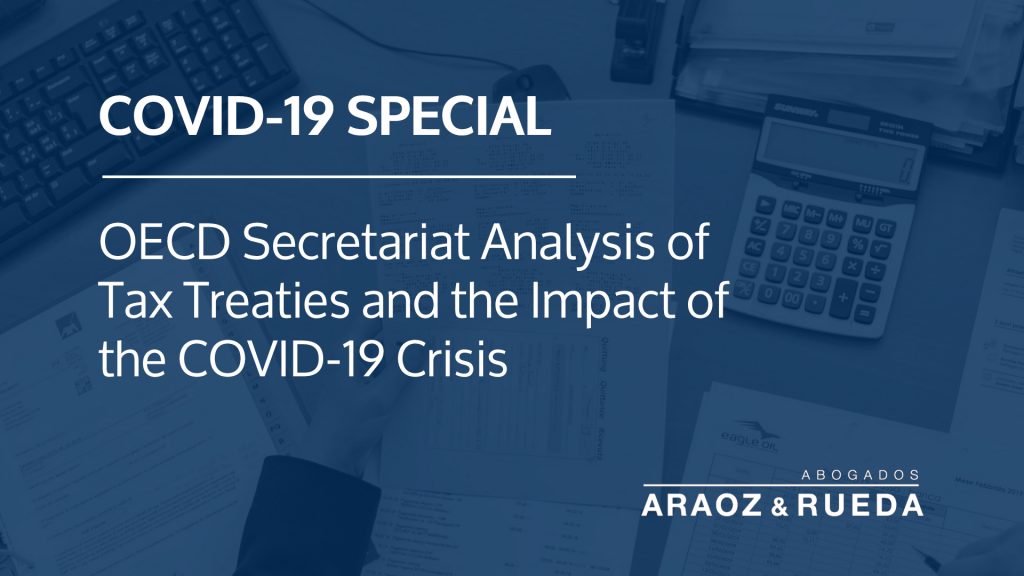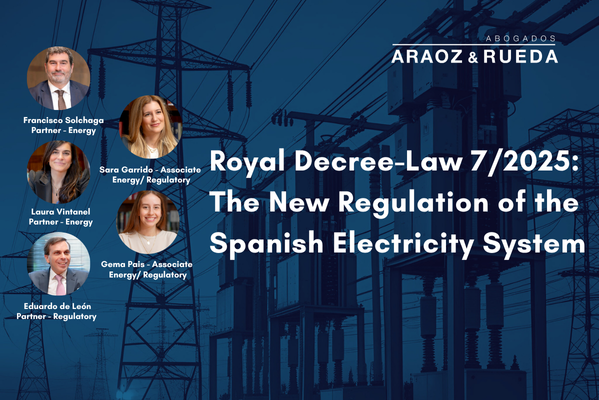The Secretariat of the Organization for Economic Co-operation and Development (“OECD”) has issued on April 3, 2020, a document named “Analysis of Tax Treaties and the Impact of COVID-19”, covering four major concerns, detailed in the paragraphs below, on the impact of COVID-19 on the application of Double Tax Treaties.
Concerns related to the creation of permanent establishments
OECD considers that it is unlikely that COVID-19 situation will create any changes to a PE determination. In this sense, considering the extraordinary nature of this situation, and to the extent that it does not become the new norm over time, teleworking from home (i.e. the home office) would not create, in principle, a Home-office PE for the business/employer. In the same line, an employee or agent working at home for a short period because of COVID-19 is unlikely to be regarded as “habitual” and, therefore, an Agency PE should not be, in principle, created in that State. However, a different approach may be appropriate if the employee was habitually concluding contracts on behalf of enterprise in its home country before the COVID-19 crisis. Notwithstanding, the duration of temporary interruptions on a construction because of the COVID-19 should not be, in principle, disregarded when evaluating the existence of a Construction-site PE.
Concerns related to the residence status of a company (place of effective management)
OECD states that all relevant facts and circumstances should be examined to determine the “usual” and “ordinary” place of effective management, and not only those that pertain to an exceptional and temporary period such as the COVID-19 crisis.
Concerns related to cross border workers
Employment income should be attributed to the place where the employment used to be exercised. In this sense, OECD compares the stimulus packages adopted by governments (e.g. Spanish ERCE) to termination payments, which should be attributable to the State where the person used to work before the COVID-19 crisis.
A change of place where cross-border workers exercise their employment could affect the relevant application of the special provisions in some bilateral treaties. This could mean the change of taxing right from one State to another, with the subsequent additional compliance difficulties arising for both employers and employees. In this regard, OECD is working with countries to mitigate the unplanned tax implications and potential new burdens arising due to effects of the COVID-19 crisis.
Concerns related to a change to the residence status of individuals
OECD refers to the tiebreaker rules set out in the OECD Model for testing the residence status of individuals under a tax treaty. Notwithstanding, for those periods covering the COVID-19 crisis, the OECD recommends to the tax administrations and competent authorities to consider a more normal period of time when assessing a person’s resident status because of the COVID-19 crisis being a period of major changes and an exceptional circumstance.
At this stage, the Spanish Tax Authorities have not issued any criterion on this matter, which should be monitored and carefully analyzed on a case by case basis for Spanish tax purposes.





